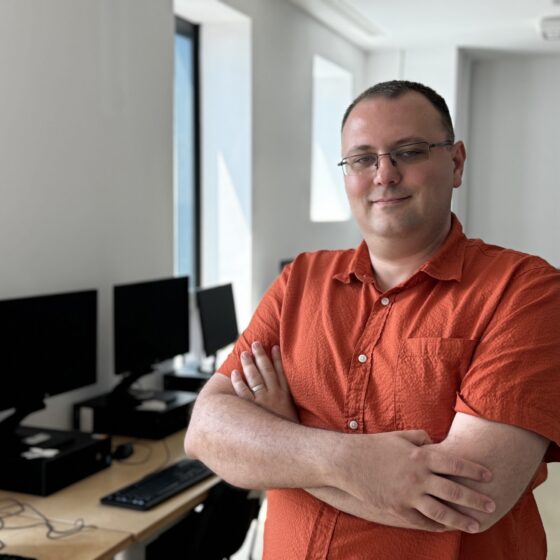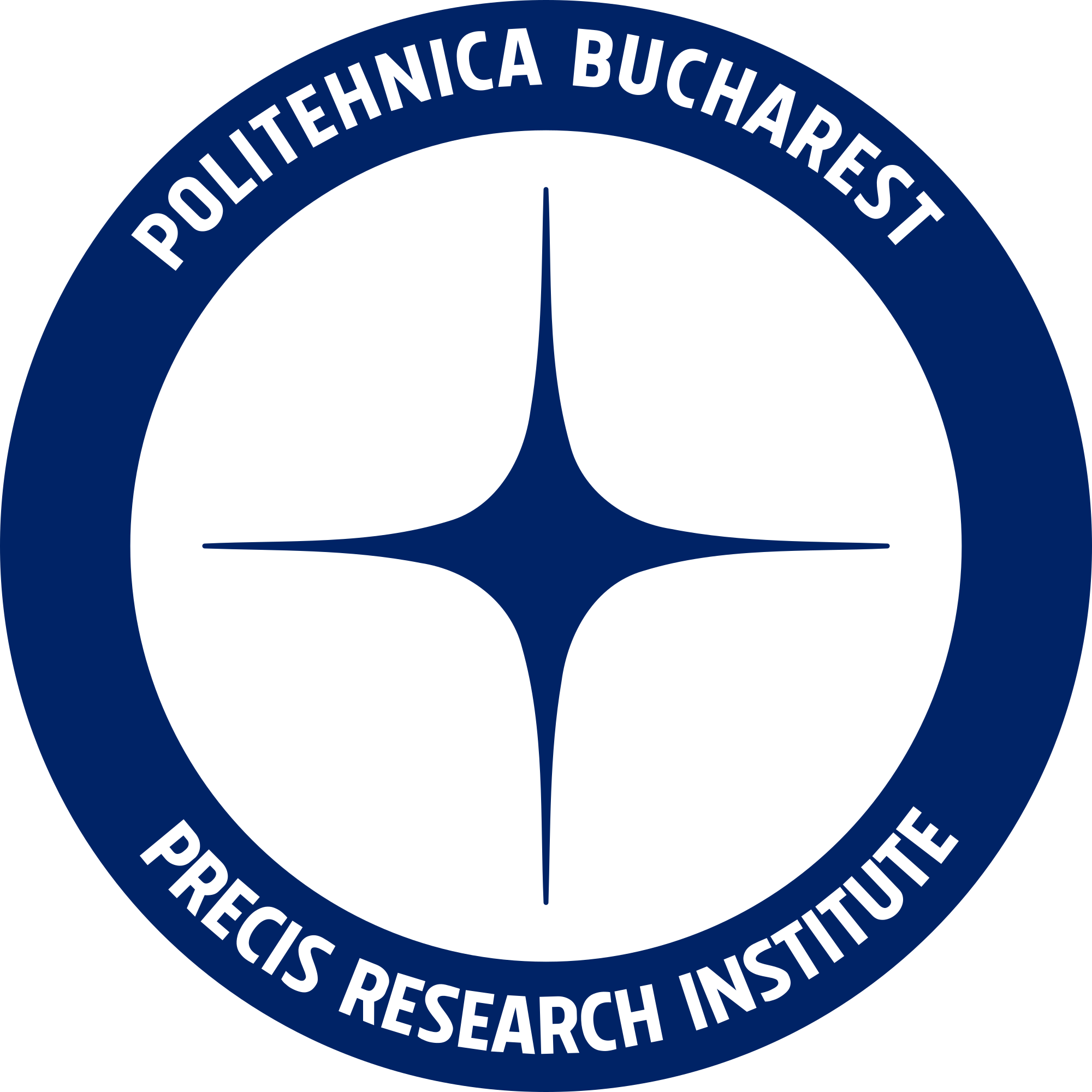Ciprian-Octavian TruicăPh.D., Engineer, Assistant Professor (Ș.L. Dr. Ing.)

areas of expertise
- Machine and Deep Learning
- Natural Language Processing
- Data, Text, and Graph Mining and Analysis
- Big Data Analytics and Management
- Data Management
education
- 2018 Doctor of Philosophy in Computer Science & Information Technology, Faculty of Automatic Control and Computers, University Politehnica of Bucharest, Romania
- 2013 Master of Science in Computer Science & Information Technology, Faculty of Automatic Control and Computers, University Politehnica of Bucharest, Romania
- 2013 Bachelor of Science in Computer Science, Faculty of Mathematics and Computer Science, University of Bucharest, Romania
- 2011 Bachelor of Engineering in Computer Science, Faculty of Automatic Control and Computers, University Politehnica of Bucharest, Romania
I am an Assistant Professor of Computer Science at the Computer Science and Engineering Department, Faculty of Automatic Control and Computers, University Politehnica of Bucharest. At the University Politehnica of Bucharest, I am a member of AIMAS (Artificial Intelligence and Multi-Agent Systems Laboratory), MobyLab (Distributed Systems Research Laboratory), and Database Systems Group.
I received my Ph.D. (2018) in Data Management and Text Mining from the University Politehnica of Bucharest, Romania. I hold an M.Sc. Degree (2013) in Computer Science Engineering and Information Technology from the University Politehnica of Bucharest, a B.Sc. degree (2013) in Computer Science and Mathematics from the University of Bucharest, and a B.Sc. (2011) degree in Computer Science and Information Technology Engineering from the University Politehnica of Bucharest.
In 2022, I was a Postdoctoral Researcher on the theme of Disinformation Detection at the Department of Information Technology, Uppsala University in collaboration with The Nordic Observatory for Digital Media and Information Disorder (NORDIS) one of the national hubs of the European Digital Media Observatory. During my stay at Uppsala University, I also hold a temporary teaching position.
In 2021, I was an invited researcher at the Fraunhofer Institute for Open Communication Systems (Fraunhofer Fokus) where I worked on Network-Aware Fake News Mitigation.
I was a Postdoctoral Researcher (2019-2020) in the Data-Intensive Systems group at the Department of Computer Science, Faculty of Natural Sciences, Aarhus University, Aarhus, Denmark, where I worked on Big Data Analytics for Time Series.
During my Ph.D. studies, I was an invited researcher (2015-2016) at the ERIC laboratory, Université de Lyon 2, France where I worked on Data Management, Machine Learning, and Natural Language Processing.
Excellence through Research, Development, and Innovation
Ciprian-Octavian Truică is currently an Assistant Professor at the Computer Science and Engineering Department, Faculty of Automatic Control and Computers, National University of Science and Technology Politehnica Bucharest where he is an active member of MobyLab (Distributed Systems Research Laboratory). He was a postdoctoral researcher at the Division of Computing Science, Department of Information Technology, Uppsala University, Sweden. From 2019 to 2020, he was a postdoctoral researcher at the Data-Intensive Systems group, Department of Computer Science at Aarhus University, Denmark. During his Ph.D., he was an invited doctoral researcher at the ERIC laboratory, University of Lyon, France, in 2015 and 2016.
Dr. Truică’s research interests include Data Management, Information Retrieval, Big Data Analytics, Machine Learning, Deep Learning, Data Mining, Text Mining, Graph Mining, Network Immunization, Natural Language Processing, and Social Media Analysis. During his research career, he has published (a) 31 peer-reviewed journal articles out of which 29 Web of Science Indexed (WoS), 12 WoS Q1 Ranked, and 12 WoS Q2 Ranked, and (b) 53 conference papers out of which 6 A-ranked conferences by CORE, 31 Indexed WoS. He received 12 UEFISCDI Precisi awards for the research output for 2020-2022. He published his work in high impact journals, e.g., FGCS (WoS Q1, IF=7.5), BDR (WoS Q2, IF=3.3), ISF (WoS Q1, IF=5.9), IEEE Access (WoS Q2, IF=3.9), etc., and prestigious conferences, e.g., EDBT (A-Ranked Conference), ACM CSCW (A-Ranked Conference), ACM CIKM (A-Ranked Conference), ICCS (A-Ranked Conference), etc.
He participated in 3 international and 10 national projects. Among these projects, he was a Principal Investigator (PI) on 3 projects that deal with Big Data Analytics, Machine/Deep Learning, Data Management, and Natural Language Processing.
Between 2021-2023, he was a postdoctoral researcher at UPB on the project titled “AI-Based Conversational Agent for Misinformation Fact-checking”, which, between 2022-2023, received funding from the OPTIM Research framework. The project concluded with the publication of two articles regarding the influence of document embeddingson fake news detection and an article on how to model corpus information using OntoLex-FrAC.
In 2022, he was a postdoctoral researcher at Uppsala University (Sweeden) were he was invited to work on the theme of Disinformation Detection within NORDIS (The Nordic Observatory for Digital Media and Information Disorder) one of the national hubs of the EDMO (European Digital Media Observatory). During this collaboration, he proposed MisRoBÆRTa, a novel deep neural ensemble model based on transformer architectures, as well as a cross-lingual BiLSTM model that uses sentence transformers for detecting misinformation. During this period, he also worked on the topic of text simplification, and, together with my colleagues, he developed SimpLex, a lexical text simplification architecture published in NCAA (WOS Q2, IF=6). In 2021, he was an invited researcher at the Fraunhofer FOKUS Institute, Berlin, Germany, where he was the PI for the “AWAKEN: content-Aware and netWork-Aware faKE News mitigation” project (DAAD grant no. 91809005). For this project, he researched topic-based sentiment analysis modelsand contextual fake news detection. Between 2019 and 2020, he was a postdoctoral researcher at the Data-Intensive Systems group at the Department of Computer Science, Aarhus University, Denmark. During this period, he worked on the Danish-funded “Innovative Use of Big Data” project (grant no. RFM-16-0014). While working on Big Data technologies and time series analysis, he published TextBenDS in ISF journal(WoS Q1, IF=5.9) and a novel method for enhancing anomaly detection using change point detection. During his PhD studies, he received two Erasmus+ research stays scholarships at the ERIC laboratory, University of Lyon. At ERIC, he worked on social media analysis. He proposed a new scalable architecture for textual data analysis published at ADMA (B-ranked conference ) and CATS, a system for analyzing tweets, presented at ACM CSCW (A-ranked conference).
At the University Politehnica of Bucharest, Dr. Truică was a member of 3 national research projects where we worked on the privacy and anonymity for Data Clouds (GEX 2016 project – Privacy and anonymity for Data Clouds (2016-2017)), real-time heterogeneous data processing (GEX 2017 – Analysis of heterogeneous data in real-time (2017-2018)), and time series analysis (GEX 2016 – Applying machine learning techniques in time series analysis (2016-2017)). From 2018 to 2020, he was a member of the ROBIN-CAR: Cognitive Systems for Personal Robots and Autonomous Vehicles (grant no. 72PCCDI/01.03.2018) national project where he worked on the processing, storing, and management of IoT data using Big Data frameworks such as Ambari Hadoop Cluster Manager. From 2019 to 2020, he was a researcher on the IntAli: Intelligent Agent for Finding Recipes based on Food Images (subsidiary contract from the NETIO no. 53/5.09.2016) project where he used his expertise and knowledge in the fields of Data Management and Natural Language Processing to propose novel document storing and analysis methods. Between 2020-2022, he was a researcher on the AI4GENDARED (no. 58PTE/2020) project which aimed to add Deep Neural Network capabilities to GMW’s Gendared product, a satellite image processing software. Between 2021 and 2023, he worked as an industry researcher on AI-based conversational agents and neural natural language generation on the HOLOTRAIN project (POC grant no. 29/221_ap2/07.04.2020) implemented at Soft Tehnica SRL.
Dr. Truică has been an active member in multiple Data Management, Big Data, and Machine Learning COST Actions, i.e., cHiPSet (IC1406) , DKG (CA19134), NexusLinguarum (CA18209), Multi3Gen (CA18231), etc. As a member of these COST actions, he attended multiple training schools and he co-authored book chapters, conference papers, and journal articles. He co-authored with members from cHiPSet (IC1406) an article on graph modeling and community detection published at DaWaK (B-Ranked Conference). Other representative works he co-authors with different members from these COST actions include: (1) computational linguistics and Linguistic Linked Open Dataarticles published in the SWJ (WoS Q2, IF=3) and (2) an article on neural natural language generation published in JAIR(WoS Q2, IF=5). He was also awarded 2 COST Short-Term Scientific Mission (STSM) grants. For the first STSM, he proposed the project with the title “Benchmarking Big Data Frameworks for Processing and Analyzing Mobile Phone Data” where he worked on a benchmark for community detection algorithms using the Hadoop Architecture. For the second STSM, he proposed the project “Anomaly and Change Point Detection in LIGO Time Series data using Machine Learning” where he developed 2 machine learning architectures for anomaly detection: DeepWave and ShallowWave.

